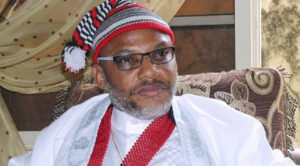
Nigeria Falls To Fourth Place in Africa’s Economic Rankings After GDP Rebase
The National Bureau of Statistics (NBS) yesterday unveiled the long-anticipated rebased Gross Domestic Product (GDP) figures, valuing nominal output at ₦372.82 trillion ($145.3 billion) using the 2019 base year.
Despite a methodological update and a more reflective economic structure, Nigeria has officially lost its status as Africa’s largest economy, sliding into fourth place behind South Africa ($410.34 billion), Egypt ($347.34 billion), and Algeria ($268.89 billion).
This marks a significant shift from years past when Nigeria held the top spot, largely impacted by the naira’s prolonged depreciation.
Expectations that the rebasing exercise would propel Nigeria ahead of Algeria were dashed, as the new data reaffirmed its trailing position.
Between 2019 and 2024, the economy recorded consistent nominal growth, increasing 82% over five years from ₦205.09 trillion to ₦372.82 trillion. The most notable surge occurred in 2023, with a 17.81% jump, although 2022 saw a temporary deceleration at 3.6%.
In real terms, the economy grew to 3.04 per cent and 3.38 per cent in 2023 and 2024, respectively. Rising from a negative growth of 6.96 per cent in 2020, following COVID-19 disruption, the GDP expanded by 0.95 per cent in 2021, while 2022 saw a 4.32 per cent growth.
The NBS said the revision “represents a 41.7 per cent increase in nominal estimates compared to a 59.7 per cent revision in the 2010 rebasing exercise”.
Similarly, the economy grew by 3.13 per cent in real terms in the first quarter of the year. It was the slowest since Q1 2024. In the fourth quarter of last year, the GDP was up by 3.76 per cent while in the previous quarter (Q3, 2024), the real growth was 3.86 per cent, just as Q2 posted 3.48 per cent.
The GDP has been rebased for the second time in the last 10 years, with the previous exercise being 2014. GDP rebasing aims to reflect recent changes in the economic structure in the output computation and bring in new sectors hitherto left unaccounted for.
Analysts have described the GDP rebasing as a crucial step toward more accurate economic assessment and planning. They noted that the upward revision reflects the growing contribution of previously unreported sectors, such as information technology, digital services, e-commerce and the creative industry, which have become increasingly relevant in the country’s economic landscape.
The experts also argued that the 41.7 per cent increase in nominal GDP highlights the evolving structure of Nigeria’s economy and the need for policy realignment to support emerging sectors.
An independent investor, Amaechi Egbo, noted that while the rebasing makes Nigeria’s economy appear larger, it does not directly translate to improved living standards or productivity unless growth is inclusive and broad-based. He noted that the improved GDP figures could reduce Nigeria’s debt-to-GDP ratio on paper, making the country’s fiscal metrics look stronger.
However, he cautioned that this statistical advantage should not distract policymakers from addressing core structural weaknesses such as high inflation, unemployment, poor infrastructure and overdependence on oil revenues.
In addition, he pointed out that rebasing offers Nigeria a chance to reframe its economic narrative and attract more foreign investment, particularly in technology and non-oil sectors.
He stressed the need for transparency, data consistency, and reforms that would enable private sector growth, deepen productivity, and ensure sustainable long-term development.
He also described the GDP rebasing as a positive technical development with implications for policy credibility, investor sentiment, and macroeconomic indicators, but insisted that its full benefits would only be realised if matched with real structural and institutional reforms.
Chief Executive Officer of the Centre for the Promotion of Private Enterprise (CPPE), Dr Muda Yusuf, has described the rebasing as a welcome development that provides a more accurate reflection of the current structure of the economy.
According to him, while expectations around the GDP rebasing had been high, the final outcome was not as dramatic as initially anticipated.
However, the process has offered critical insights into the evolving nature of the Nigerian economy.
He noted that one of the key takeaways from the rebased figures is the clearer understanding that the economy is larger than previously reported.
Yusuf stated that the new data reveal important structural shifts, particularly the growing prominence of real estate, which now ranks as the third-largest contributor to GDP, surpassing crude oil.
He also pointed out the significant growth of the ICT sector, which has further reshaped the composition of economic activity.
Yusuf explained that the new figures show an increased share of agriculture and services sectors in the overall GDP, indicating a relative decline in the contribution of industries. He stated that this shift offers a more nuanced understanding of the economic landscape and supports more informed policy decisions.
According to him, the slight increase in the overall size of the economy will likely improve Nigeria’s standing both on the African continent and globally.
Share your story or advertise with us: Whatsapp: +2348033202396 Email: sentinelnewsng@gmail.com








